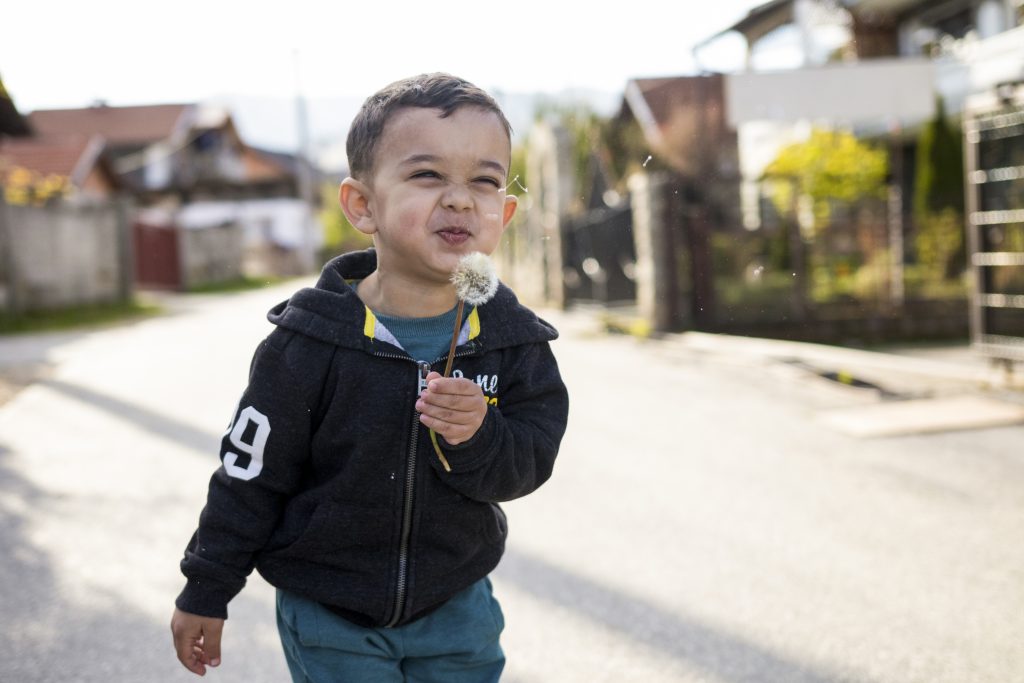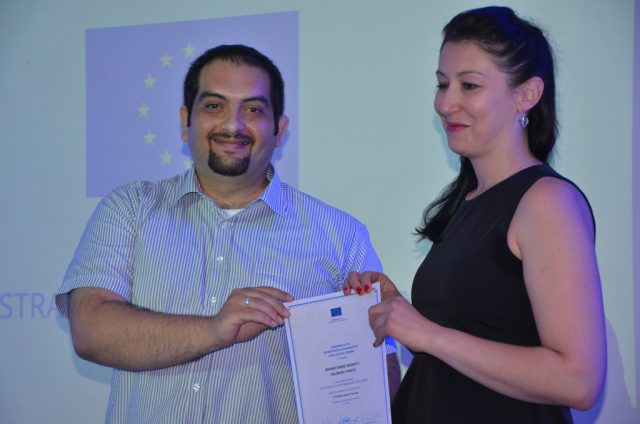
This was supposed to be a story about national minorities, however, it soon became an effort to find the words to best describe the greatness of a man who does not allow others to judge him based on what he is, but rather on all the important characteristics that make him WHO he is.
This was supposed to be a story about national minorities, however, it soon became an effort to find the words to best describe the greatness of a man who does not allow others to judge him based on what he is, but rather on all the important characteristics that make him WHO he is.
Dalibor Tanić, Editor of the Roma online portal “UDAR”, puts his professional identity above all else and views his nationality as a mitigating factor rather than a source of aggravation or weakness. He considers himself a journalist, activist, and editor first and foremost, placing these above his nationality. For a time, Tanić worked and lived in Serbia where he encountered higher quality and more advanced legal solutions regarding issues related to nationality, which he attributed to a simpler state apparatus as compared with that of Bosnia and Herzegovina (BiH). In addition, Serbia has made significant steps forward in its negotiations with the European Union (EU) and, thus, must work to improve minority relations accordingly, among other things.
There were situations in which some editors labeled Tanić as a Roma journalist and, therefore, assigned him to cover a certain set of topics. He, however, didn’t see that as his problem, but rather as a manifestation of other people’s shortcomings.
“Everyone has a chance to do something worthwhile with their lives. I gave my absolute best to be a professional and I succeeded,” says Tanić.

When it comes to the status of Roma in BiH, Tanić would prefer they are not viewed as having a separate set of circumstances as the problems are the same for all citizens of this country, a condition he considers quite normal for a transitioning society. Nevertheless, he does agree with the fact that Roma have far fewer opportunities in this society.
“Today, if you are not a member of a political party, it’s almost impossible to get a civil service job, regardless of your qualifications. Now, imagine the position of the Roma when referring to such topics of nepotism, corruption, and a society where the core values are distorted,” states Tanić.
We are well aware of the power of the media to initiate societal change and we ask ourselves what influence they truly have when it comes to shaping the opinions and attitudes of the average citizen.
Amidst images that capture poverty and the dirty details of everyday Roma life, an unenviable position is portrayed and the question arises as to how such content influences the consumers of such.
“What you see and hear on the evening news at 7:30 pm you take at face value and then create your personal judgments about someone, or something. It’s really not necessary to talk about the media’s depiction of the Roma. For example, if you have a 100-second reportage and 90 seconds is dedicated to covering positive stories about successful Roma students, you only need to insert 10 seconds of coverage containing muddy neighborhoods, dirty kids, and begging, and the positive coverage is erased from the viewer’s mind. The average viewer will only remember those 10 seconds, which will once again reinforce their prejudices towards the Roma,” Tanić emphasizes.
Tanić adds that in order to change this situation, it is necessary to change the public service policies and to introduce regular TV programming in the Romani language.
Despite the numerous changes, displacements, and difficulties the BiH society has been facing for decades, it appears that the country’s citizens are just becoming colder more prejudiced towards others and those who are different.
According to Tanić, this situation is a result of ignorance and the lack of awareness.
“That is how stereotypes and prejudices are born. On the other hand, we have become completely indifferent towards everything. I don’t want to generalize, but we had the opportunity through the social networks to see how people in Sarajevo reacted towards migrants. People saw them as terrorists and thieves, not as refugees like they themselves were just 20 something years ago,” says Tanić.
Tanić believes that the Sejdić-Finci verdict made the border of inequality much more visible because the verdict still hasn’t been implemented despite the fact that it was issued by an institution whose laws are above the domestic laws. He also adds how the implementation of the verdict is also driven by politics, and that it will not be implemented without foreign influence.
In addition to the current living conditions in BiH, which we are all witness to, there is an ever-increasing number of people deciding to the leave this country, but Dalibor Tanić doesn’t want to follow this path. He enjoys his rights on a daily basis while confronting the various challenges that life brings.
On the online Roma portal “UDAR”, Tanić strives each day to create quality content and searches for new topics with his associates. By seeking to illuminate and promote positive stories, he is painting a better picture of this national minority than does the media content produced by other outlets.
As a final note, he adds that BiH can, indeed, be a society of equal rights, but as long as the political issues remain, situations like the non-enforcement of the Sejdić-Finci verdict will continue to exist.
“Let me remind you that this is not the only judgment of the European Court of Human Rights that tells us that we are not an equal society at this time,” Tanić concludes.
Whether we will ever be a society of equality can be based on how we allow those 10 seconds of media content influence us. Is that what is actually happening or is it just what is being served to you? Are you ready to face everyday life and ask for more than those 10 seconds of prejudice and media propaganda?
This publication has been selected as part of the Srđan Aleksić Youth Competition, a regional storytelling competition that challenges youth to actively engage with their own communities to discover, document, and share stories of moral courage, interethnic cooperation, and positive social change. The competition is a primary component of the Post-Conflict Research Center’s award-winning Ordinary Heroes Peacebuilding Program, which utilizes international stories of rescuer behavior and moral courage to promote interethnic understanding and peace among the citizens of the Western Balkans.
The Balkan Diskurs Youth Correspondent Program is made possible by funding from the Robert Bosch Stiftung and the National Endowment for Democracy (NED).







